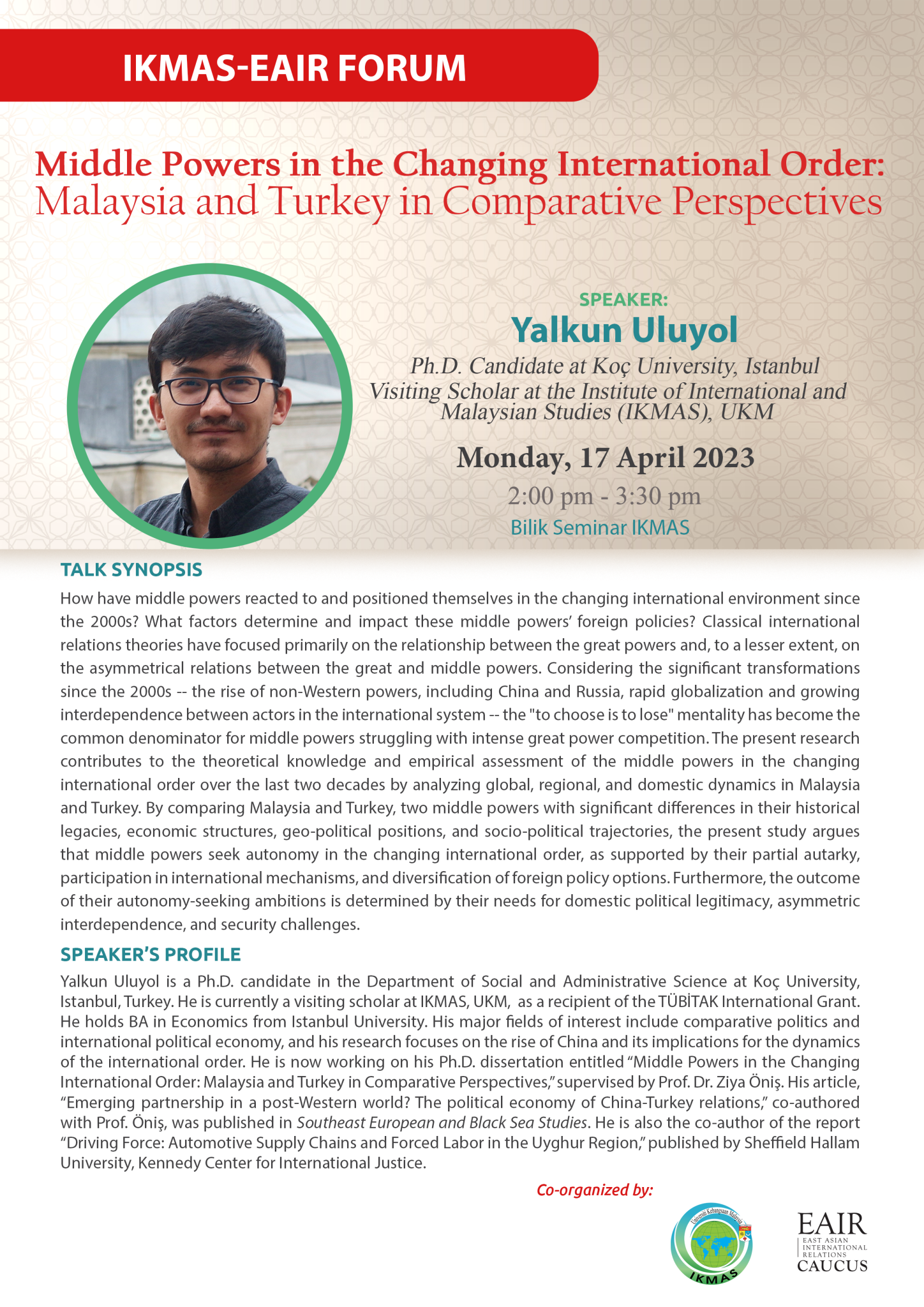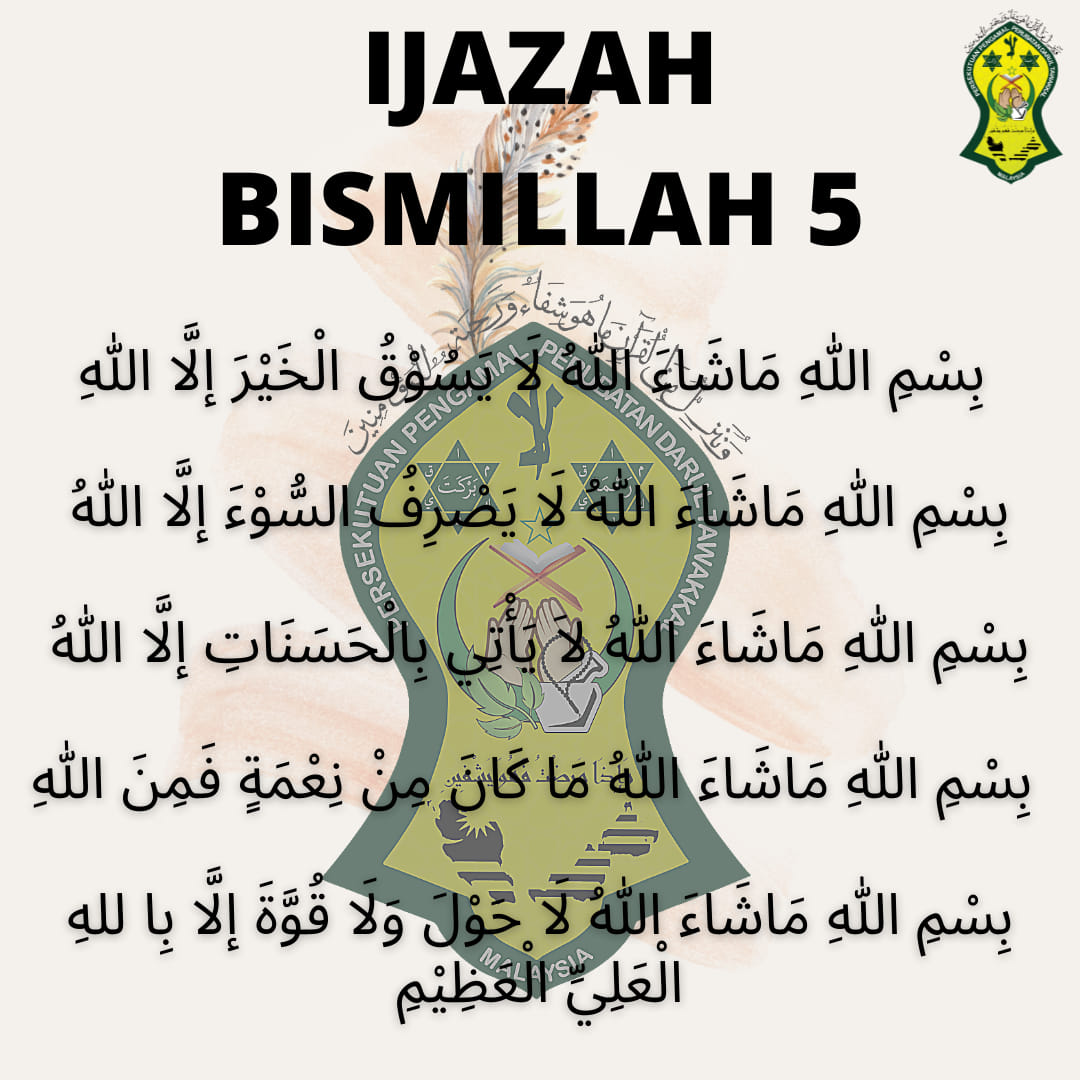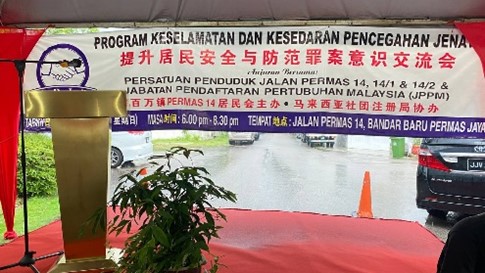Middle Powers in the Changing International Order: Malaysia and Turkey in Comparative Perspectives

How have middle powers reacted to and positioned themselves in the changing international environment since the 2000s? What factors determine and impact these middle powers’ foreign policies? Classical international relations theories have focused primarily on the relationship between the great powers and, to a lesser extent, on the asymmetrical relations between the great and middle powers. Considering the significant transformations since the 2000s — the rise of non-Western powers, including China and Russia, rapid globalization and growing interdependence between actors in the international system — the “to choose is to lose” mentality has become the common denominator for middle powers struggling with intense great power competition. The present research contributes to the theoretical knowledge and empirical assessment of the middle powers in the changing international order over the last two decades by analyzing global, regional, and domestic dynamics in Malaysia and Turkey. By comparing Malaysia and Turkey, two middle powers with significant differences in their historical legacies, economic structures, geo-political positions, and socio-political trajectories, the present study argues that middle powers seek autonomy in the changing international order, as supported by their partial autarky, participation in international mechanisms, and diversification of foreign policy options. Furthermore, the outcome of their autonomy-seeking ambitions is determined by their needs for domestic political legitimacy, asymmetric interdependence, and security challenges.









.jpeg)




